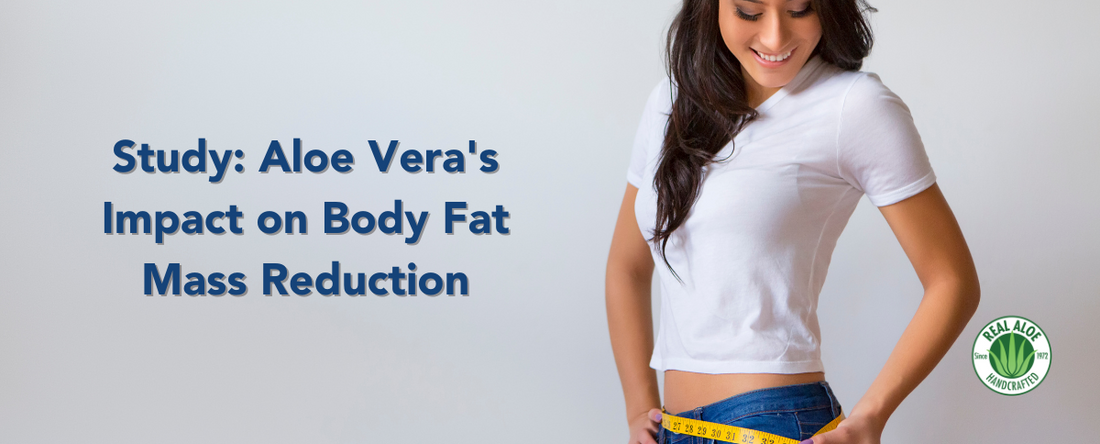In recent years, Aloe Vera has gained significant attention for its potential health benefits beyond its well-known topical applications. A noteworthy study, published in the Journal of Nutritional Science and Vitaminology (https://pubmed.ncbi.nlm.nih.gov/22878390/), explored the impact of Aloe Vera on body fat mass reduction. The findings suggest that Aloe Vera supplementation may indeed contribute to the reduction of body fat mass, opening new avenues for holistic approaches to weight management.
Healthy weight loss can be achieved by providing your body with compounds and nutrients found naturally in Aloe Vera when combined with regular exercise and a nutritious diet.
Aloe Vera and Body Fat Mass Reduction:
The study conducted by researchers in Tokyo investigated the effects of Aloe Vera Gel supplementation on body composition. The results indicated a significant reduction in body fat mass among subjects (rats) who received Aloe Vera supplementation compared to the control group. The researchers attributed this effect to the bioactive compounds present in Aloe Vera, such as polysaccharides and antioxidants, which may play a role in modulating lipid metabolism and promoting fat loss.
"These results suggest that intake of Aloe Vera gel reduced body fat accumulation, in part, by stimulation of energy expenditure. Aloe Vera gel might be beneficial for the prevention and improvement of diet-induced obesity."
Understanding Aloe Vera's Comprehensive Health Benefits:
Beyond its potential role in body fat mass reduction, Aloe Vera gel offers a myriad of health benefits that contribute to overall well-being. Here are some of the key advantages:
Digestive Support:
- Aloe Vera is renowned for its digestive benefits. The gel contains compounds like acemannan, which may support a healthy digestive system by promoting regular bowel movements and soothing gastrointestinal discomfort.
Nutrient Absorption:
- Aloe Vera may enhance nutrient absorption in the digestive tract. This is crucial for ensuring that the body effectively absorbs and utilizes essential vitamins and minerals from the food we consume.
Anti-Inflammatory Properties:
- Aloe Vera possesses potent anti-inflammatory properties, attributed to compounds like polyphenols. These properties may help alleviate inflammation throughout the body, contributing to overall health and well-being.
Immune System Support:
- The polysaccharides in Aloe Vera are believed to stimulate the immune system, enhancing the body's ability to defend against infections and illnesses.
Neurological Support:
- Preliminary studies suggest that Aloe Vera may have neuroprotective effects. The antioxidants present in Aloe Vera may help combat oxidative stress in the brain, potentially supporting neurological health.
Blood Sugar Regulation:
- Some research indicates that Aloe Vera may contribute to blood sugar regulation. This could be beneficial for individuals managing conditions like diabetes, though further research is needed to establish conclusive evidence.
Skin Health:
- While commonly known for its topical benefits, Aloe Vera also supports skin health from within. Its anti-inflammatory and antioxidant properties may contribute to a healthier complexion.
Summary:
The study highlighting Aloe Vera's role in reducing body fat mass sheds light on the potential of this plant beyond its conventional uses. As ongoing research continues to unravel the complexities of Aloe Vera's bioactive compounds, it becomes increasingly clear that this versatile plant offers a multitude of health benefits, ranging from digestive support to potential contributions to weight management. Integrating Aloe Vera Gel and juices into a balanced lifestyle is a valuable addition for those seeking comprehensive well-being.

